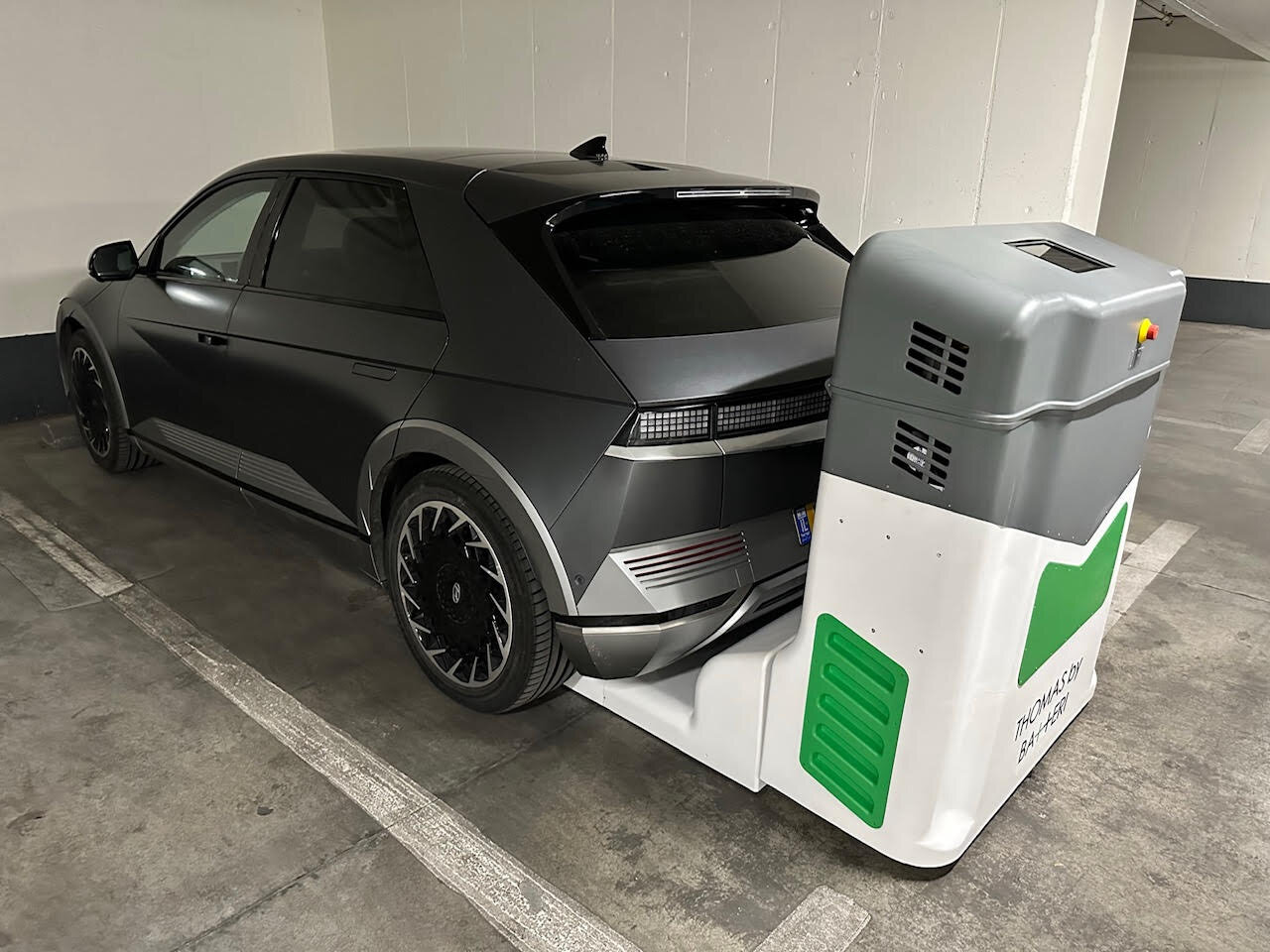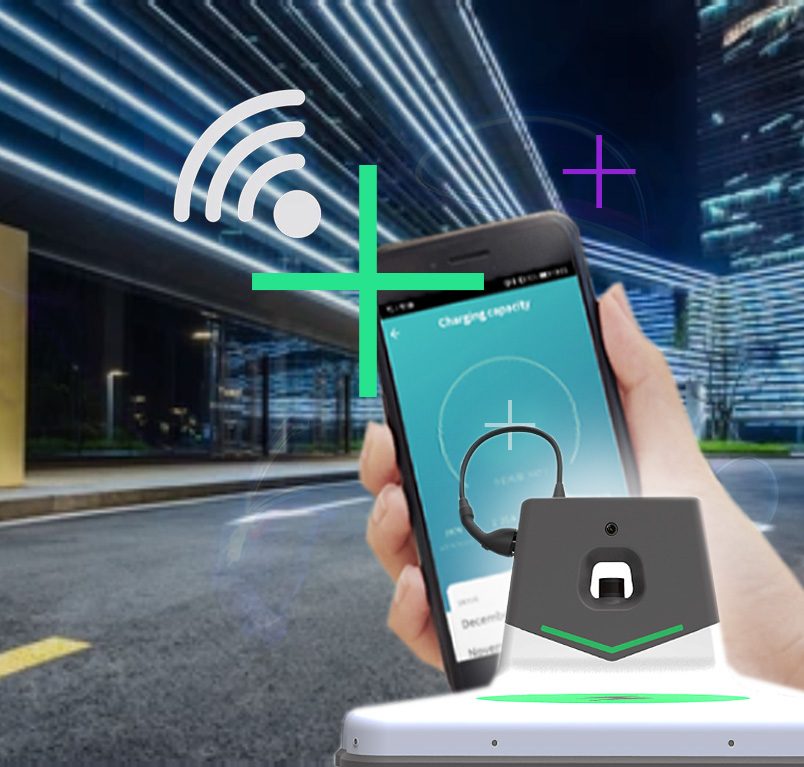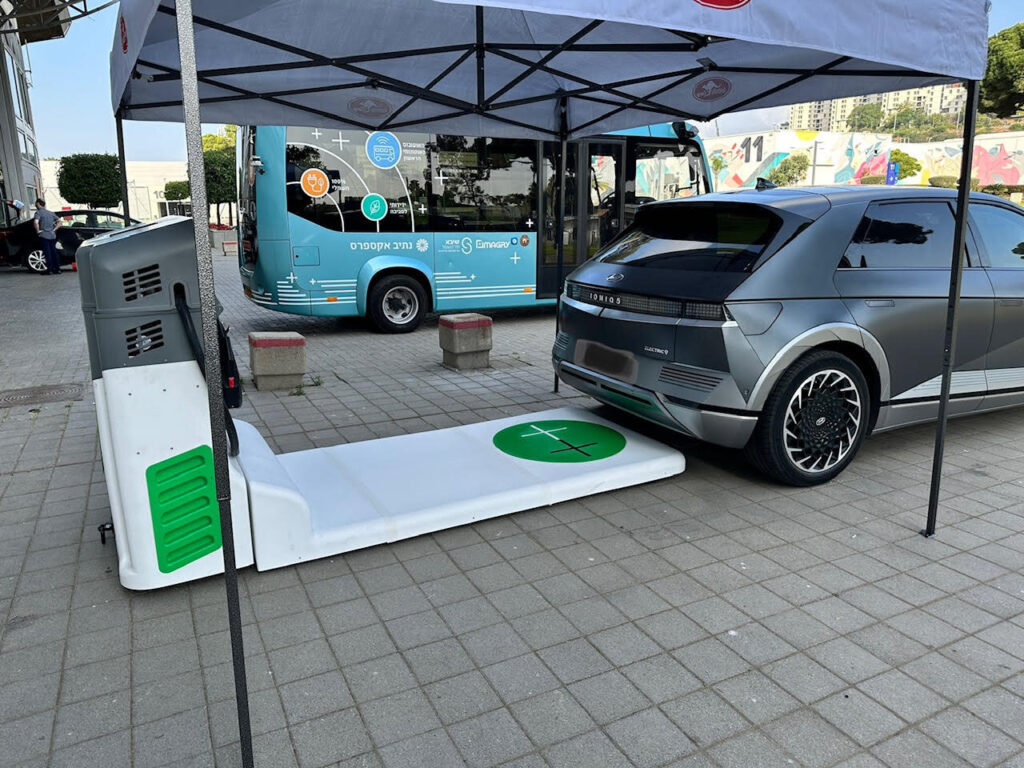An Israeli startup has developed a robot that can autonomously pick out individual electric vehicles (EVs) and charge them very quickly – with minimal human interaction and without the driver having to wait long periods at a public location.
Tomer Shahaf, the co-founder and CEO of Tel Aviv-based startup BaTTeRi, tells NoCamels that one major reason why people are not buying EVs is because not everyone can charge their vehicle at home.
Private charging stations can be very costly, he says, and those who do not have one are often reluctant to use a public station, which requires them to wait for the car to charge, often for long periods.
Shahaf and his BaTTeRi co-founders, Tamar Bezalel Burshtein and Ram Rotbart, realized that there would have to be a solution to the issue of that waiting period in order to encourage more people to switch to electric vehicles.
In an increasingly environmentally conscious world, electric vehicles are growing in popularity. In 2022, there were more than 26 million EVs on the road worldwide, according to the International Energy Agency.

The IEA also predicts that by 2030, more than 60 percent of cars sold globally will be EVs, which will require “an adequate surge” in public charging stations.
Speaking to NoCamels from military reserve duty, Shahaf says that the idea of creating an autonomous robot was inspired by a person close to him who had an aversion to filling up their car at the gas station. As a result someone else would do this for them – essentially providing an autonomous refueling service.
And so they developed Thomas the AI robot charger – named for the jovial and famously useful tank engine of children’s stories.
The L-shaped Thomas has wheels on the bottom, allowing it to move independently around a parking lot and charge EVs on demand.
The design means that the robot can easily slide underneath a car for wireless recharging, where enabled, or plug into the vehicle via its upper arm when it must – for now – connect manually.
The robot identifies the cars that need charging through an app, where drivers provide details of their vehicles, how often they need charging and to what extent.
Accessing that information, Thomas then selects which cars to charge and when, using license plate recognition to find the required vehicles. (If the parking lot had an attendant, such as in a workplace garage, they could determine which cars get priority for charging.)
“Thomas navigates through the parking lot autonomously with cameras and sensors,” Shahaf explains.
Sign up for our free weekly newsletter
SubscribeThese sensors will not only help Thomas understand its surroundings but also stop it from getting too near moving cars or people walking around the parking lot.
All of Thomas’ functions are controlled via the app. An EV owner can signify whether the lot is one that they use regularly like at a workplace, and will therefore need frequent charging, or whether it is a one-time visit. The driver can decide how long to charge and how often – and even on which days.
“Thomas would charge you up and you wouldn’t even know it, because you parked at your office or apartment or went shopping or to watch a movie,” Shahaf says.
The robot can charge EVs to drive collectively up to 400 kilometers before it needs to go back to its own charging station. It is also programmed to recharge itself in off-peak hours, when demand for electricity is lower.
What is more, according to Shahaf, the process is five to seven times faster than a normal wall charger.
“The main goal for us is to make EV charging simple, seamless and accessible,” he says.

For almost the past year, Thomas has been in a trial in the CityZone in Tel Aviv, a tech hub that works with startups trying to improve people’s lives, with an eye to widespread expansion in the future.
The company is planning to move into a range of countries, including the US and Japan. It hopes that very soon Japan will require EV buyers to not only have proof they have a parking spot but also proof that they have access to a charging point.
BaTTeRi has received backing from a private angel investor in Israel and is raising funds during the current trial. It has also recently received a grant from the European Institute of Innovation and Technology as well as an award from the Climate Solution Prize in Israel.
In the near future, the company hopes that Thomas will become more commercial. Shahaf also hopes that more EVs have the option for wireless charging – already a part of the robot’s capabilities and something that would make its job simpler.
“We’ve tried to make it very human,” says Shahaf, “and very happy to help you.”
Related posts

Editors’ & Readers’ Choice: 10 Favorite NoCamels Articles

Forward Facing: What Does The Future Hold For Israeli High-Tech?

Impact Innovation: Israeli Startups That Could Shape Our Future




Facebook comments